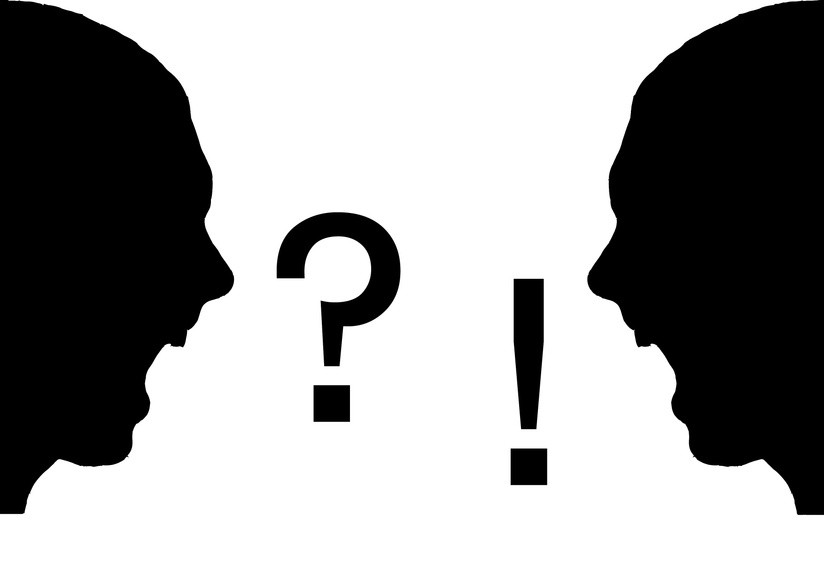Part 1 | Part 2
In the first part of this article the reality of shubuhāt and their inconspicuous nature were discussed, as were some important points that should be considered when dealing with them. This topic will be concluded in this article by mentioning further points related to how a Muslim should approach and deal with them.
How to Deal with & Reply to Specious Arguments (shubuhāt) Regarding Islām
1. Certainty in the truth
Ibn al Qayyim (Raḥimullah) said: “When certainty enters the heart, it fills with light and brilliance, and all doubts, concerns and worries disappear and then the heart will be filled with love for Allāh (Subḥanahu wa ta’āla), fear and hope in Him. ”[1] Therefore, if one falls into the predicament where they face a shubhah, the first matter that should be done is accuse the shubhah of fallacies before they begin to accuse the Islamic principle they adopt as being fallacious. This is especially true for those matters that the scholars have had an agreement over or where the majority of scholars have agreed upon that particular matter at hand.
2. Humility towards Islamic scholarship and heritage
The Prophet (Ṣallāhu ‘alayhi wa salam) commanded us to take guidance from those who came before us and base our understanding of the religion on their understanding. The Prophet (Ṣallāhu ‘alayhi wa salam) said: “…Verily he among you who lives long will see many differences, so you must keep to my Sunnah and to the Sunnah of the Khulafā’ ar-Rāshidīn (the rightly guided caliphs), those who guide to the right way. Cling to it stubbornly [literally: with your molar teeth]. Beware of newly invented matters [in the religion], for verily every bid’ah (innovation) is misguidance.” [2] Therefore, when a new narrative or understanding of the religion or aspects of the religion are presented, one must come to terms with the fact that the righteous predecessors were more blessed and accurate than our own selves in understanding the religion.
In fact in every prayer, we make the supplication: “Guide us to the straight path, the path of those whom you have blessed…” the key word being ‘blessed’, which has been mentioned in the past tense. Hence the companion ‘Abdullāh ibn Mas’ūd (RaḍiAllāhu ‘anhu) said: “We are a people that follow, not innovate…and we will not go astray if we hold onto the narrations (of the Prophet & companions).”[3] Likewise al Awzā’i said: “Hold onto the statements of the salaf even if people reject you and beware of the opinions of men no matter how much they adorn their speech for you.” [4] We must therefore venerate the understanding of the salaf and be weary not to accuse them of interpreting the religion simply based on their own specific circumstances and thus by doing so, rendering their scholarly heritage as void.
3. Adhere to the Muḥkamāt (unequivocal verses and sayings)
Many times, many shubuhāt are spread by presenting the equivocal sayings of Allāh (Subḥanahu wa ta’āla) or His messenger (Ṣallāhu ‘alayhi wa salam) i.e. those that are open to more than one interpretation without referring to the muḥkamāt, thus creating confusion in the minds of the people. Allāh (Subḥanahu wa ta’āla) warns us of this approach in the Qur’ān where He says: “It is He who has sent down to you, [O Muhammad], the Book; in it are verses [that are] precise – they are the foundation of the Book – and others unspecific. As for those in whose hearts is deviation [from truth], they will follow that of it which is unspecific, seeking discord and seeking an interpretation [suitable to them]. And no one knows its [true] interpretation except Allah. But those firm in knowledge say, “We believe in it. All [of it] is from our Lord.” And no one will be reminded except those of understanding.” [5]
4. Gather all relevant texts together before building narratives and grand narratives based on isolated texts
Scholars for centuries have stipulated that before a scholar passes a verdict regarding a matter, he/she must possess knowledge of all the relevant texts related to the issue. This is because the complete picture and understanding of a text can only be truly understood when understanding the text in light of other texts on the same topic. It could be the case that one particular text is vague and thus open to many interpretations, whereas had a person referred to other similar texts, then the obscurity might have been removed. For example, Anas (RaḍiAllāhu ‘anhu) reported that Allah’s Messenger (Ṣallāhu ‘alayhi wa salam) happened to pass by the people who had been busy in grafting the trees. Thereupon he said: “If you were not to do it, it might be good for you. (So they abandoned this practice) and there was a decline in the yield. He (the Prophet [Ṣallāhu ‘alayhi wa salam]) happened to pass by them (and said): What has gone wrong with your trees? They said: You said so and so. Thereupon he said: You have better knowledge of the affairs of the world.” [6]
Based upon this ḥadīth, some have tried to argue that Islām is a secular religion because the Prophet (Ṣallāhu ‘alayhi wa salam) said: “You have better knowledge of the affairs of the world” thus indicating that religion does not deal with worldly affairs.” To make such an assertion based on one ḥadīth, is not only bold, but also very naive and disingenuous to Islamic scholarship. In a slightly different version of the ḥadīth the Prophet (Ṣallāhu ‘alayhi wa salam) said: “I am a human being, so when I command you about a thing pertaining to religion, do accept it, and when I command you about a thing out of my personal opinion, keep it in mind that I am a human being.”[7]
This version of the narration clarifies that the meaning of the “affairs of the world” refers to those matters that the Prophet (Ṣallāhu ‘alayhi wa salam) did not receive revelation regarding and thus left the matter open for people to decide for themselves. Otherwise there are many matters in Islamic law that deal with “worldly matters”, even matters pertaining to the buying and selling of produce from date-palm trees (see for example the chapter الأصول و الثمار or السلم in books of jurisprudence).
5. Absolute truth comes from Allāh
Finally, we all must keep in mind that absolute truth comes from Allāh (Subḥanahu wa ta’āla) and the ability to perceive it correctly also comes from Allāh (Subḥanahu wa ta’āla) and not from our own whims. When facing difficult questions and scenarios where Islām or aspects of Islam is portrayed in a negative manner, many feel pressurised to conform to what the adversary says because it may be the stance that the majority of the society accept, or it may be the case that the media and other institutions are pushing a particular narrative for the public to agree to, whether directly or indirectly. Allāh says:
“And who is more truthful than Allah in statement?” [8]
“Such is Allah, your Lord, the Truth. And what can be beyond truth except error? So how are you averted?” [9]
“O Allāh! Show us the truth as the truth and grant us the ability to act upon it, and show us falsehood as falsehood and grant us the ability to abstain from it, and do not make us confused about it otherwise we would surely go astray, and make us leaders for the pious.”
[donationbanner]
Source: www.islam21c.com
Notes:
[1] Madārij as-Sālikīn 2/398
[2] Abū Dāwūd & Tirmidhi
[3] Sharḥ Uṣūl I’tiqād Ahlis-Sunnah wal Jamā’ah, 1/86 by al Lālikā’i
[4] Lum’atul I’tiqād p.51 by Ibn Qudāmah al Maqdisi.
[5] Qur’ān 3:7
[6] Ṣaḥīḥ Muslim
[7] Ibid: 2362
[8] Qur’ān 4:87
[9] Qur’ān 10:32







